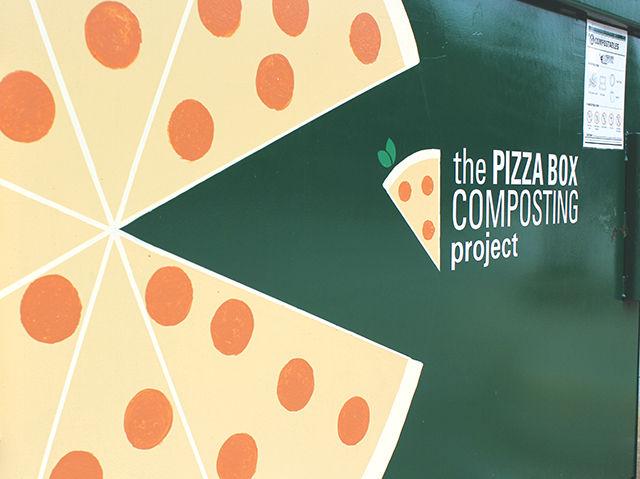After a year of success with its own Pizza Box Composting Project, NC State has inspired universities from across the country to work on creating similar composting projects on their own campuses.
The project, piloted by NC State’s Waste Reduction and Recycling Office and University Housing in March of last year, has composted approximately 8,700 pizza boxes since its inauguration
“I probably get a phone call or email once a week from universities that are interested in finding out more and potentially starting up their own programs,” said Lauren McKinnis, the outreach coordinator for NC State Waste Reduction and Recycling. “They want to know how much it costs and how exactly we went about it.”
Some of the universities that have reached out to McKinnis have included UNC-Asheville, The University of Pennsylvania, and Iowa State University.
McKinnis said she has been satisfied with the response the program has received from students.
“We have a really big interest on campus for students to compost,” McKinnis said. “We’ve been hearing so much feedback from students saying they want to know what more they can compost.”
McKinnis said having different looking dumpsters on campus that stand out is one reason the program has become so popular, along with an educational campaign led mostly by students.
When the program first started, McKinnis worked largely with the students in the EcoVillage. Now, students from all over campus have gotten involved.
Social media has played a large part in the program’s success, according to McKinnis. Various stories posted on Facebook have helped people stay informed of and engaged in the program. NC State recently posted about the program’s first year and received over 500 likes and an outpouring of encouraging comments.
The pizza box composting program has also been popular off campus.
“We’ve gotten a lot of attention in the media,” McKinnis said.
The News & Observer picked up the story last year, and the program was featured in BioCycle magazine, an industry magazine that centers on composting, renewable energy and organics recycling. University Business Magazine picked up that same article from BioCycle, McKinnis said.
After the pizza boxes are picked up from campus, Brooks Contractor in Goldston, North Carolina takes them to a composting site.
Amy Brooks, an NC State alumna and the face of Brooks Contractor, said after the boxes are unloaded, they are mixed with other materials, including a lot of bulking agents such as woodchips and leaves.
The mixed material is then used to create a long windrow, or pile of organic matter. A turner in the windrow turns the mixed material frequently.
The windrow is turned at least once a week, and the material stays there for at least two months before it is sent to a curing pile to stabilize and finish. The material sits in its last state for at least four months.
“From start to finish, we can make a compost from a pizza box that someone ordered on take-out to a finished compost product in as little as six months,” Brooks said.
Brooks said the company sells compost to landscape projects and larger construction jobs that work with no real topsoil.
“We’ll mix the resulting compost from the pizza boxes with other soil and materials and create a mix that will grow anything you want to,” Brooks said.
The program still hopes to make some improvements in the future, including possibly bringing the finished compost back to campus.
“Unfortunately, right now it is not something that we’re bringing a lot of back to campus, but that’s something we’re working on,” McKinnis said.








